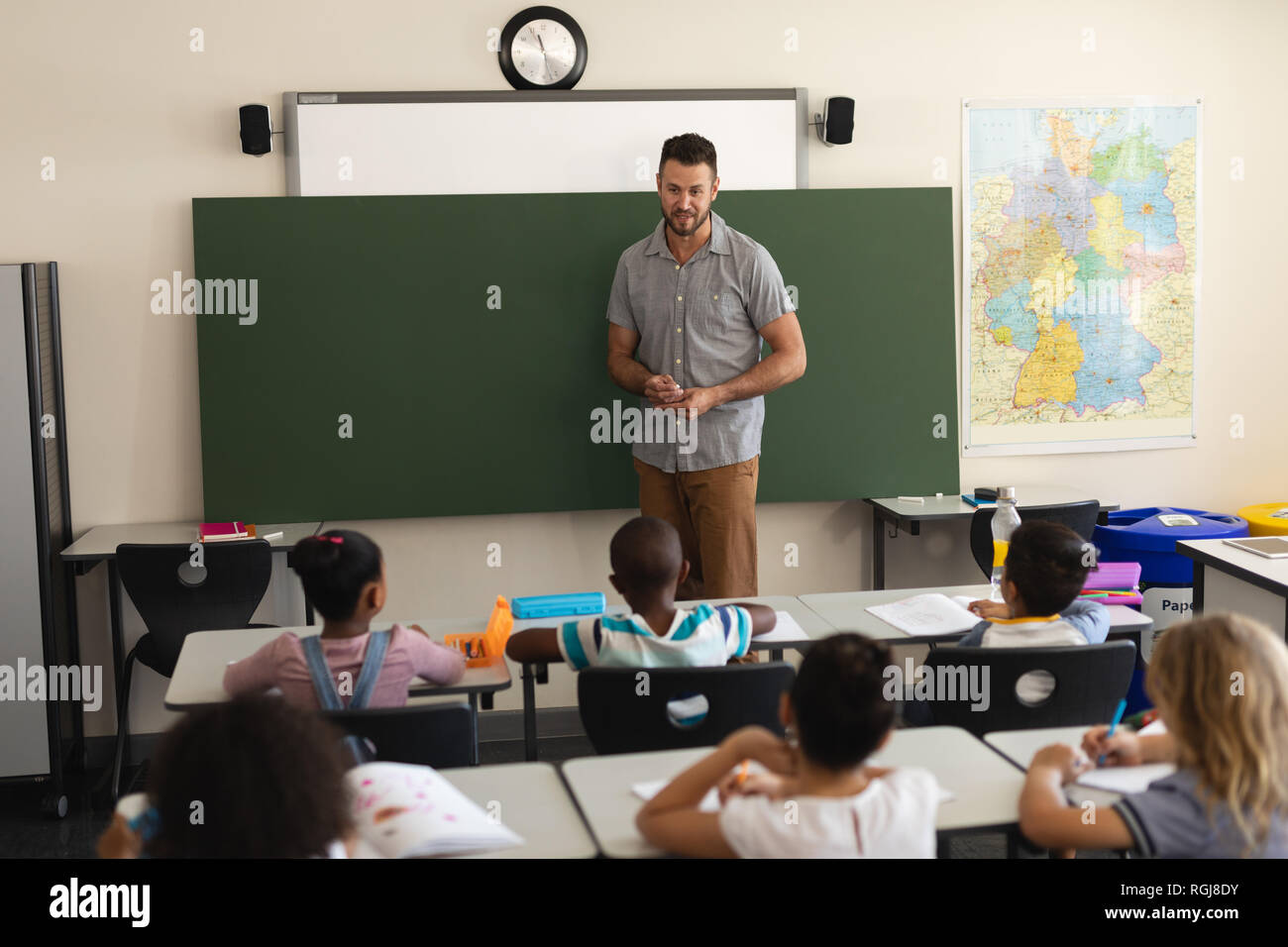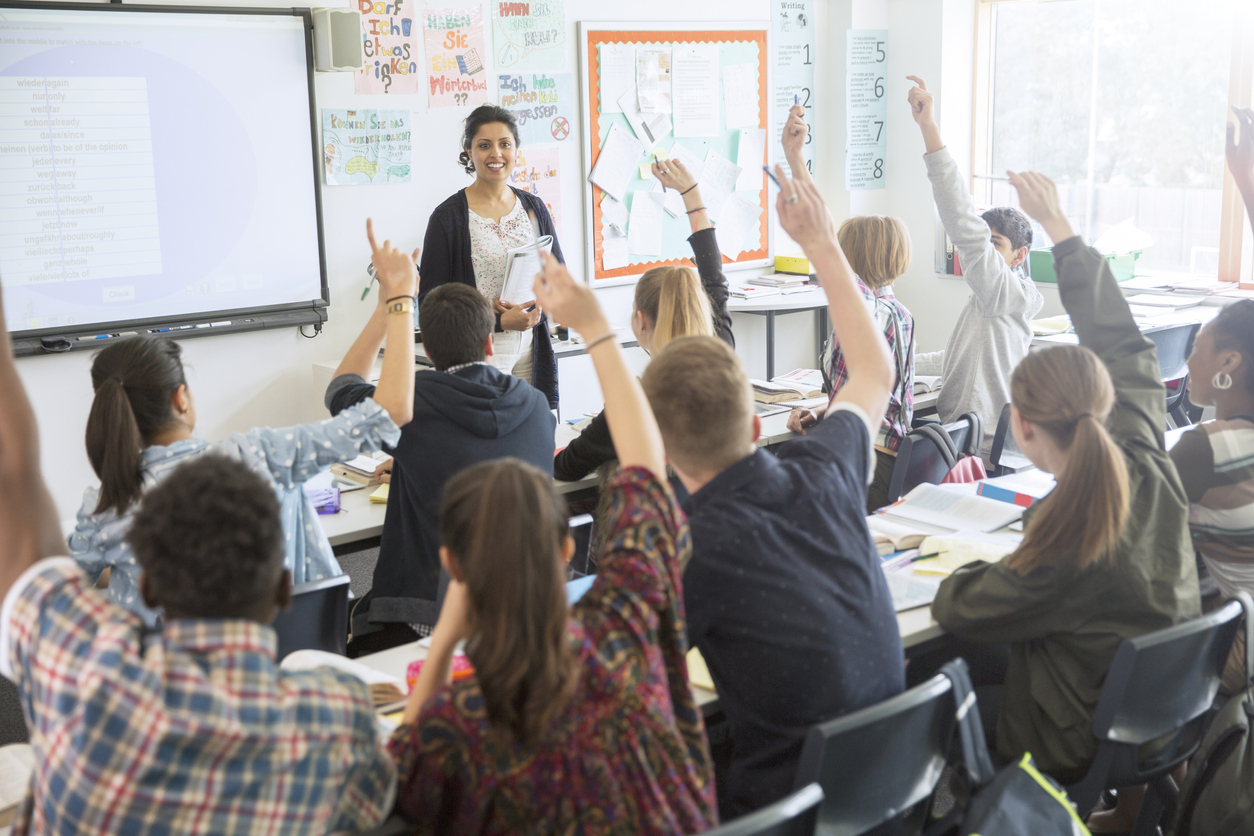Exploring the Different Mentor Techniques in Primary Science Education Today
The landscape of main science education is progressing, with different mentor methods gaining prominence in contemporary class. Inquiry-based discovering, hands-on experiments, and the combination of innovation are redefining how educators involve young minds. Additionally, collaborative strategies and differentiated instruction are being utilized to satisfy the diverse needs of pupils, enhancing both involvement and understanding. As we take a look at these methods, questions occur about their performance and the implications for future educational techniques. What might these changes in approach mean for the future generation of students?
Inquiry-Based Knowing
Inquiry-Based Understanding (IBL) is an instructional approach that encourages pupils to discover clinical concepts via doubting, investigation, and hands-on trial and error. This method highlights the duty of pupils as energetic individuals in their knowing, advertising vital thinking and analytical abilities. By involving with real-world concerns, students become inspired and interested, which boosts their understanding of clinical concepts.
In IBL, educators serve as facilitators, assisting pupils as they browse their queries as opposed to supplying details straight. This student-centered approach permits distinction, suiting numerous finding out paces and designs. Students develop skills in formulating hypotheses, developing experiments, and analyzing data, which are essential for scientific literacy.
Furthermore, IBL promotes collaboration among trainees, motivating them to share findings and ideas. This collective query promotes social abilities and a feeling of community within the class. In addition, the procedure of query urges strength, as trainees learn to welcome failing as a tipping stone toward understanding.
Hands-On Experiments
Hands-on experiments are a vital part of efficient scientific research education and learning, enhancing the principles of inquiry-based learning. These experiments enable trainees to involve directly with scientific principles, cultivating a much deeper understanding through experiential understanding. By adjusting materials and observing end results, young learners can realize abstract concepts in tangible means.
Such activities advertise essential thinking and analytic skills, as trainees hypothesize end results, conduct experiments, and evaluate outcomes. This process encourages them to ask inquiries, refine their understanding, and create a clinical mindset. Hands-on experiments can be tailored to varied understanding styles, ensuring that all trainees have the possibility to engage meaningfully with the material.
Furthermore, hands-on experiments often motivate cooperation amongst peers, promoting synergy and communication skills. Operating in teams allows trainees to share concepts, go over findings, and gain from one an additional, which improves their total academic experience.
Integrating hands-on experiments right into the main scientific research educational program not just improves the finding out setting yet also cultivates a long-lasting passion in scientific research. By proactively joining their education and learning, pupils are most likely to establish an enthusiasm for scientific questions that prolongs beyond the class.

Modern Technology Integration
Integrating innovation into main science education and learning has become progressively important in fostering student engagement and enhancing learning results. The usage of electronic tools, such as interactive simulations, virtual labs, and academic software application, supplies students with opportunities to explore scientific principles in cutting-edge methods. These resources assist in a deeper understanding of complex subjects by enabling learners to envision and adjust variables that would certainly be impractical in a conventional classroom setting.
Moreover, modern technology assimilation motivates customized finding out experiences. Trainees can proceed at their own pace, taking another look at difficult ideas with multimedia sources, which satisfy different understanding designs. This versatility not only supports individual development however also grows a feeling of autonomy in learners.
In addition, innovation functions as a bridge to real-world scientific research, linking trainees with existing research study and specialist payments. Access to clinical journals and on the internet data sources broadens trainees' perspectives on clinical questions and fosters important thinking abilities.
Collaborative Knowing
Collective discovering plays an essential duty in primary science education and learning by promoting synergy and communication skills among trainees. This strategy encourages learners to collaborate, share expertise, and take part in analytical, which enhances their understanding of scientific principles. By participating in group activities, pupils learn to articulate their ideas, listen to varied perspectives, and work out services, all of which are vital abilities in both real-world and scholastic contexts.

Research study shows that joint discovering can result in boosted inspiration and involvement in scientific research subjects, as pupils locate satisfaction in shared experiences (primary science tuition Singapore). Additionally, this technique prepares students for future collective undertakings, furnishing them with the abilities needed for effective team effort in greater education and expert environments. Eventually, welcoming collaborative discovering in key science education and learning can substantially enrich the discovering experience and advertise a much deeper understanding of scientific query
Differentiated Instruction

Separated direction can materialize in numerous means, such as differing the web content, procedures, or products of discovering. Educators might utilize tiered tasks that supply varying levels of intricacy, enabling trainees to work at their respective preparedness degrees. Furthermore, versatile organizing methods can assist in collaboration amongst pupils with various capabilities, fostering peer discovering.
Analysis plays a critical function in this approach, as it informs instruction and assists teachers understand each trainee's distinct demands. Developmental assessments, such as monitorings and tests, can direct educators in changing their strategies to boost discovering end results. primary science tuition Singapore. Eventually, by implementing set apart direction in primary scientific research education, teachers can cultivate a much more equitable and efficient learning atmosphere, encouraging all students to reach their complete possibility in comprehending clinical sensations
Final Thought
In recap, the varied teaching techniques in primary scientific research education, including inquiry-based understanding, hands-on experiments, technology combination, collaborative discovering, and differentiated instruction, collectively add to a much more effective knowing atmosphere. These approaches advertise crucial reasoning, problem-solving skills, and a Get More Information deeper comprehension of scientific ideas. By applying these techniques, teachers can produce encouraging and engaging class that address the varied needs of students, eventually cultivating a long-lasting passion in scientific research and boosting academic accomplishment.
Inquiry-Based Understanding (IBL) is an instructional technique that motivates trainees to discover clinical principles with doubting, investigation, and hands-on experimentation.Joint understanding plays an essential duty in main science education by promoting teamwork and interaction abilities among students.Research study suggests that collective discovering can lead to raised inspiration and interaction in scientific research topics, as trainees discover enjoyment in shared experiences.In cultivating a comprehensive learning setting, separated direction emerges as an essential technique to accommodate the varied needs and capacities of trainees in main science education and learning. Eventually, by implementing set apart direction in key science education and learning, teachers can grow a much more equitable and reliable discovering setting, equipping all students to reach their complete potential in recognizing scientific phenomena.